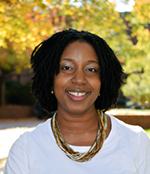Speakers and Moderators
[label type=”label-primary”]
Day 1: Friday, November 30th
[/label]
Welcome
Opening Remarks
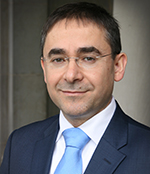 Fouad Abd-El-Khalick
Fouad Abd-El-Khalick
Dean, School of Education, UNC–Chapel Hill
Fouad Abd-El-Khalick is Professor and Dean of the School of Education at the University of North Carolina at Chapel Hill. Before coming to Carolina, Abd-El-Khalick was Grace Wicall Gauthier Professor of Education and Associate Dean for Research & Research Education in the College of Education at the University of Illinois at Urbana-Champaign (2014 – 2016), where he was a tenured full professor in, and also served as Head of, the Department of Curriculum & Instruction (2011 – 2015). His research focuses on the teaching and learning about nature of science (NOS) in precollege grades, and in preservice and inservice science teacher education settings. He also maintains an active international program of educational research and development in Egypt, Lebanon, and Qatar.
Abd-El-Khalick served as an elected member (2004 – 2007), and currently is ex-officio member (2015 – 2019), of the NARST Executive Board of Directors (previously: National Association for Research in Science Teaching). He also served as associate editor for the Journal of Research in Science Teaching and School Science and Mathematics Journal, and sits on the editorial boards for the International Journal of Science Education, Science & Education, and Journal of Science Education and Technology. Currently, Abd-El-Khalick is Co-Editor of the Journal of Research in Science Teaching (2015 – 2019) and Associate Editor of the Journal of Science Teacher Education (2013 – 2017).
From NARST, he has received the Early Research Career Award (2003), Journal of Research in Science Teaching Award (2001), and Outstanding Doctoral Dissertation Award (1999). During his tenure at the University of Illinois at Urbana-Champaign (2000 – 2016) he received the College of Education Distinguished Scholar Award (2005) and Distinguished Senior Scholar Award (2011), and was named University of Illinois Scholar (2006 – 2009). In 2011, Abd-El-Khalick was elected to the rank of Fellow of the American Association for the Advancement of Science for, according to the Association, “his outstanding research on teachers’ and students’ conceptions of the nature of science that helped provide a foundation for this field of research.”
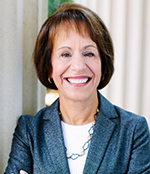 Carol L. Folt
Carol L. Folt
Chancellor, UNC–Chapel Hill
Carol L. Folt is the 11th Chancellor of the University of North Carolina at Chapel Hill.
An internationally recognized life scientist, award-winning teacher and accomplished academic leader, Folt has worked to fulfill her leadership mission by placing Carolina’s students at the center, advancing the university’s academic excellence, championing Carolina as a leading global public research university and focusing on innovation that translates next generation ideas into real-world applications.
For the 17th time, Carolina was the best value in American public higher education, according to Kiplinger’s Personal Finance, reflecting the University’s long-standing commitment to opening access to a high quality, affordable education to talented students from all backgrounds. Under her leadership, the university surpassed, for the first time, $1 billion in annual research expenditures in 2017. Carolina ranks 6th in the nation in overall federal research and development. Research provides students with unique, hands-on learning experiences and more than 60% of graduating seniors conduct independent research prior to graduation.
In 2017, Carolina launched The Blueprint for Next, the first unifying strategic framework in its history, and the Campaign for Carolina, a $4.25 billion campaign dedicated to using every dollar to advance the public good. Inspired by the transformational impact that the arts made in her life and work as a scientist, Folt also initiated Arts Everywhere, a pan-university program celebrating the multifaceted power of the arts to illuminate the human condition, allow for reflection, promote dialogue and provoke action.
Folt came to Carolina in 2013 from Dartmouth College where she spent 30 years as a teacher and academic leader. She served as interim president in 2012-2013 and as a faculty member in the Department of Biological Sciences, Dean of the Faculty and Provost.
Follow @ChancellorFolt on Twitter & Instagram.
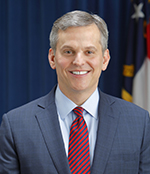 Josh Stein
Josh Stein
Attorney General, North Carolina
Josh Stein was sworn in as North Carolina’s 50th Attorney General on January 1, 2017. Stein is focused on protecting North Carolina families from crime and consumer fraud.
Stein has made combatting the opioid crisis a top priority. His office drafted the STOP Act to reduce the number of people who become addicted to opioids through smarter prescribing practices and the Synthetic Opioid Control Act to close loopholes in state criminal law concerning fentanyl. Both laws passed the General Assembly unanimously and were signed into law by the Governor.
Prior to being elected Attorney General, Stein served as a state Senator and as a Senior Deputy Attorney General in the North Carolina Department of Justice. In the State Senate, Stein successfully led efforts to put more violent criminals behind bars by expanding the state’s DNA database. Stein wrote the School Safety Act and legislation that banned stalking using GPS tracking devices.
For his work in the state Senate, Mothers Against Drunk Driving (MADD) and the AARP of North Carolina each named him legislator of the year and his Republican and Democratic colleagues ranked him as the most effective Democratic senator.
As Senior Deputy Attorney General, Stein worked to protect kids from online sexual predators and to help run the payday lenders charging loan shark interest rates out of the state.
Stein previously taught high school in Zimbabwe, served as legal counsel in the United States Senate, and worked with two economic development organizations in North Carolina.
Stein is a graduate of Dartmouth College and earned law and public policy degrees from Harvard University. He and his wife Anna have three children, who all attend North Carolina public schools like they did.
Plenary Session 1
Introductory Remarks
Gary L. Bowen, PhD, ACSW
Dean and Kenan Distinguished Professor, School of Social Work, UNC-Chapel Hill
Dr. Bowen is dean and Kenan Distinguished Professor in the School of Social Work at the University of North Carolina at Chapel Hill. An intervention researcher, Dr. Bowen has extensive experience working with public schools. He co-developed the School Success Profile (SSP) online assessment and intervention planning tool in the early 1990s, which addresses students’ beliefs about their social environment, as well as their beliefs about their own physical and psychological health and school performance. Dr. Bowen also developed the School Success Profile Learning Organization (SSP-LO) instrument to assess schools’ organizational readiness for innovation. Co-author of the technical report, Students in Peril: Crime and Violence in Neighborhoods and Schools (1998), Dr. Bowen has published extensively and lectured worldwide on issues of student safety and wellbeing among middle and high school students. In 2017, he was selected as an American Academy of Social Work and Social Welfare Fellow for his distinguished accomplishment as a scholar and practitioner dedicated to achieving excellence in his work to advance social good. Dr. Bowen is past president of the National Council on Family Relations (2009-2011). His honors include a Distinguished Alumni Award in 2013 from the University of North Carolina at Greensboro’s School of Health and Human Sciences and a Distinguished Alumni Award in 2016 from the University of North Carolina at Chapel Hill’s School of Social Work. Dr. Bowen currently serves on the Board of Trustees of Children’s Home Society of North Carolina and as a member of National Advisory Board for Camp Corral.
Response to Plenary 1
Panel
Moderators

Sarah Verbiest
Clinical Associate Professor, School of Social Work, UNC–Chapel Hill
Sarah Verbiest is a Clinical Associate Professor at the UNC School of Social Work and the Executive Director of the Center for Maternal & Infant Health in the UNC School of Medicine. She is also the CDC Senior Consultant for the National Preconception Health and Health Care Initiative and the director of the Every Woman Southeast Coalition, a regional preconception health initiative. In addition to teaching courses on health equity and policy, she directs several programs addressing the needs of women, pregnant women, new mothers and their infants – including tobacco cessation, recurring preterm birth prevention with 17P and postpartum health and wellness. She earned her Masters in Social Work, Masters in Public Health (Maternal and Child Health) and Doctorate in Public Health (Leadership) from the University of North Carolina at Chapel Hill.
Tauchiana Williams
Clinical Assistant Professor, School of Social Work, UNC–Chapel Hill
Participants
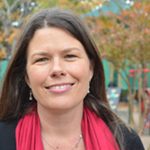 Mebane Rash
Mebane Rash
CEO and Editor-in-Chief of EducationNC and the NC Center for Public Policy Research
Mebane Rash is the CEO and editor-in-chief of EducationNC and the N.C. Center for Public Policy Research. Mebane attended Irwin Elementary, First Ward Elementary, McClintock Middle, and East Mecklenburg High School in Charlotte. She graduated from the University of Virginia in 1990 and the UNC School of Law in 1993. At the UNC School of Law, she was a member of the North Carolina Law Review. She has been a member of the North Carolina State Bar since 1993, and she is admitted to practice in both the state and federal court systems.
After law school, she worked for Carolina Legal Assistance, a mental disability law project, before joining the nonpartisan N.C. Center for Public Policy Research as the policy analyst from 1994-98 and the director of law and policy from 2006-14. From 1995-99, she was an adjunct professor at the UNC School of Law. She was an attorney for the ACLU-NC from 1998-99.
She is the president of the Board of Trustees of the national Governmental Research Association. In 2018, she was invited to attend the the Aspen Executive Seminar on Leadership, Values, and the Good Society. In 2013, she was one of 60 women from 25 countries invited to spend a week at Harvard’s Kennedy School of Government to study Women and Power: Leadership in the New World. She served on the inaugural Z. Smith Reynolds Leadership Council. In 1997, she was selected to be a William C. Friday Fellow for Human Relations, a fellowship for emerging leaders across North Carolina. She has won national awards from the Governmental Research Association for most distinguished research, outstanding policy achievement, and most effective education of the public.
 Christine Kushner
Christine Kushner
Wake County School Board Member, Freelance Writer and Policy Analyst
Keith Sutton
Nonpartisan District 4 Member of Wake County Schools District
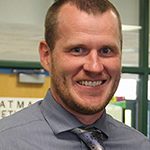 Michael T. Fuga
Michael T. Fuga
Ed.D, Principal, Neal Middle School, Durham, NC, Principal of the Year 2018
Neal Middle School principal Michael Fuga is the Durham Public Schools Principal of the Year for 2018. Fuga became principal of Neal Middle School in 2015. He started his teaching career in Durham at the school, but left to pursue his master’s degree at UNC-Chapel Hill and start on the path to administration,
Fuga has worked in education for 14 years, spending five years as a teacher, two as an assistant principal and a principal for the past seven years. He earned a doctorate in educational leadership at UNC-CH as well as a master’s degree in school administration. He began his teaching career in Pennsylvania after earning a bachelor’s degree from Washington & Jefferson College in Washington, Pennsylvania.
Jim Wise
MSW, Chapel Hill High School Student Assistance Program Specialist, Students Against Violence Everywhere (SAVE) Advisor
Jim Wise has been working as a social worker in public schools for over 30 years. For the past 13 years he has served as the Student Assistance Program Specialist at Chapel Hill High School. In that role he works with students and families that are dealing with issues involving drug and alcohol problems as well as mental health issues that are impacting school performance. He has been the lead Student Assistance Specialist for the past 5 years. In that capacity he serves as the district liaison to numerous community coalitions and groups that work on issues of substance abuse prevention and education and issues relating to student mental health programming. Jim has also been an advisor with the group Students Against Violence Everywhere (SAVE) at the school, state and national levels for over 20 years. Lieutenant Nate Chambers: I grew up in Orange County and graduated from Orange High School in 1989. After graduating high school I enlisted into the US Army. I served 11 years in the Army before returning home. I started my law enforcement career with the Orange County Sheriff’s Office in 2001. I worked briefly with the Hillsborough Police Department before coming to work with the Chapel Hill Police Department where I have been for 13 years. During my career I have been a Patrol Officer, School Resource Officer and Juvenile Investigator.
MacKenzie Minter
Knightdale High School Student, Link Crew
MarQuay Spencer Gibbs
Knightdale High School Student
Working Dinner
Starting a Conversation – Working Across Institutions, Systems, and Practices to Support Student Safety and Wellbeing
Moderators
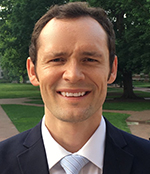 Todd Jensen
Todd Jensen
Research Associate, The Jordan Institute for Families, School of Social Work, UNC–Chapel Hill
Dr. Todd Jensen is a Research Associate in the Jordan Institute for Families and a Research Assistant Professor in the School of Social Work at the University of North Carolina at Chapel Hill. Dr. Jensen is committed to strengthening families and promoting youth well-being, as evidenced by his research, teaching, and community engagement. He has studied extensively the experiences of families who face shifts in structure, particularly when parental figures exit or enter a household. During his doctoral studies at the University of North Carolina at Chapel Hill, this work was supported by two awards—a Chancellor’s Fellowship from the Royster Society of Fellows and a pre-doctoral fellowship from the Eunice Kennedy Shriver National Institute for Child Health and Human Development. His research on stepfamilies has been featured by the New York Times and Child Trends. Dr. Jensen currently serves as Co-Principal Investigator on a federally funded, nationwide project aimed at supporting the U.S. Air Force Family Advocacy Program and their efforts to strengthen families and prevent family maltreatment among active-duty members. Dr. Jensen also serves as an investigator on a multi-year grant to support the development, implementation, and evaluation of the Get Ready Guilford Initiative, a large-scale community effort focused on promoting the healthy development and school readiness of children in Guilford County. Dr. Jensen teaches graduate courses on human development, family theory, research methods, and statistics. He seeks to bolster students’ capacity for evidence-based practice, and optimize their efforts to support families and youth in the community.
 Steven Knotek
Steven Knotek
Associate Professor of School Psychology, School of Education, UNC–Chapel Hill
Steve Knotek is a psychologist trained as a practitioner and as a researcher in prevention and early intervention. His research focuses on: (a) enhancing the capacity of professionals, parents and caregivers to address their children’s developmental challenges, and (b) understanding the use of consultation. His goal is to investigate how consultation may be utilized in service of early intervention programs that aim to support the competence and resiliency of students who are at-risk for school failure and/or who are in traditionally underserved populations.
Knotek’s research interests have been heavily influenced by his professional experience. He has worked in a children’s museum, as a family therapist for seriously emotionally disturbed children and adolescents in an inner-city community, and then finally as a psychologist working with minority students in poor rural counties. This work convinced him of the resilience and competence inherent in children, their families, and their caregivers. As a museum educator he was privileged to see children act in a creative and motivated fashion.
Finally, as a school psychologist Knotek was able to also collaborate with many professionals and parents who shared the same overarching goals for promoting the success of students of color. These experiences have led him to research in consultation, early intervention and innovation. Currently he is focusing on interventions. Knotek’s project, “Madres para Niños,” aims to enhance Latina mothers’ knowledge to support their children’s school readiness. He is also developing a coaching-for-competence model for coaches and student-athletes. The goal is to maximize students’ protective factors and psychological strengths through participation in organized athletic settings.
[label type=”label-primary”]
Day 2: Saturday, December 1st
[/label]
Welcome
Opening Remarks
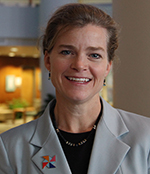 Julie Byerley
Julie Byerley
Vice Dean for Education and Chief Education Officer, School of Medicine, UNC Chapel Hill
Julie Story Byerley, MD, MPH, is the Vice Dean for Education and Chief Education Officer for the UNC School of Medicine. Dr. Byerley is responsible for the curriculum and programs for medical students, including student admissions, assessments, meeting accreditation standards and oversight of student affairs. Also, she contributes to the direction of Graduate Medical Education at UNC Hospitals.
Dr. Byerley is a professor of pediatrics and Vice Chair for Education in the Pediatrics Department. She practices as a general pediatrician in the inpatient setting at UNC Hospitals, with clinical focus on diagnostic dilemmas and the care of patients with complex conditions.
Dr. Byerley earned a BA in Physics at Rhodes College. Before attending medical school at Duke University, she worked as a high school science teacher. She completed her Pediatrics Residency and Chief Residency at UNC and earned a Master’s of Public Health at UNC in Maternal and Child Health. She has been a member of the UNC faculty since 2002.
Plenary Session 2
Research-Informed Bullying and Sexual Violence Prevention Among Youth: Social-Emotional Learning and School Climate Improvement Approaches

Dorothy Espelage
Professor, Department of Psychology, University of Florida–Gainesville
See bio on our keynote speakers page.
Presented by:
Fouad Abd-El-Khalick
Dean, School of Education, UNC–Chapel Hill
Concurrent Session 1 Speakers
Session I.1 – Using Monitoring to Support Safe and Welcoming Schools and Districts
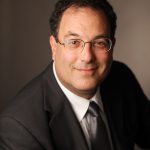
Ron Astor
Lenore Stein-Wood & William S. Wood Professor of School Behavioral Health, School of Social Work and School of Education, University of Southern California
Session I.2 – Beyond the Shield: Integrating SROs into School Supports for Student Safety and Wellbeing
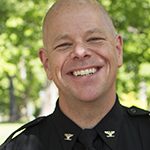 Christopher Blue
Christopher Blue
Chief of Police and Executive Director for Community Safety, Town of Chapel Hill
Christopher C. Blue joined the Chapel Hill Police Department in 1997. He served as a patrol officer, Crime Prevention officer, SERT Commander, Patrol Commander, Assistant Police Chief, and in a variety of other positions before he was appointed to the position of Police Chief in 2010. In 2017, he was appointed to the position of Chief of Police and Executive Director for Community Safety for the Town of Chapel Hill.
Chris received a Bachelor of Arts in Radio, Television, and Motion Pictures from the University of North Carolina at Chapel Hill and a Master’s in Public Administration from North Carolina State University. He is a 2004 graduate of the Administrative Officers Management Program at North Carolina State University.
He serves on the Board of the North Carolina Police Executives Association and he is a member of the NC Association of Chiefs of Police and International Association of Chiefs of Police. He is also active in his community, serving as an Advisory Board member for the Chapel Hill – Carrboro YMCA, Board member and past-President for Volunteers for Youth, Former Chair-Board of Directors for Our Children’s Place; Board of Trustees- Coastal Horizons, Inc., appointee to the North Carolina Commission on Racial and Ethnic Disparity, member of the North Carolina Criminal Justice Education and Training Standards Commission, and member of the Chapel Hill/Carrboro NAACP.
Chris and his wife, Natasha, have been married for 23 years and they have two daughters. In his spare time, Chris is an avid runner and enjoys playing the guitar.
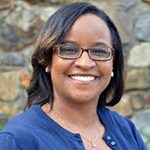 Pamela Baldwin
Pamela Baldwin
Superintendent, Chapel Hill–Carrboro City Schools
Dr. Baldwin has enjoyed a successful career in public education spanning over 17 years in North Carolina. Since 2014, she has served as the superintendent of the Asheville City Schools in Asheville, North Carolina. Prior to her current position, Dr. Baldwin served as the assistant superintendent of curriculum and instruction for Scotland County Schools (2012-2014), and the director of teaching and learning for Currituck County Schools (2010-2011). Dr. Baldwin also previously served as a high school principal for New Hanover County Schools (2011-2012), and a middle school and high school assistant principal and principal for Onslow County Schools (2003-2010). She began her career in public education as a high school science teacher in Jacksonville, North Carolina.
She has a bachelor’s degree in biology from George Mason University in Fairfax, Virginia, a master’s degree in school administration from East Carolina University, and a doctorate in educational leadership and administration from the University of North Carolina Wilmington.
Session I.3 – Promoting Equity and Combating Discrimination in Schools: Safety and Wellbeing for All Students
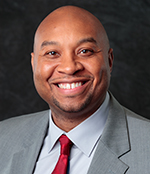 Rodney Trice
Rodney Trice
Assistant Superintendent for Equity Affairs, Wake County Public School System
Dr. Rodney Trice is the Assistant Superintendent for Equity Affairs for the Wake County Public Schools (WCPSS), the nation’s 15th largest school system. Before joining WCPSS, he served as Executive Director for Curriculum, Instruction, and Technology and later, Associate Superintendent for Student & School Services and Equity Oversight with the Chapel Hill-Carrboro City Schools. Dr. Trice has served in leadership roles for education organizations focused on educational equity at the state and national level. He has led numerous workshops for schools and districts around the country on culturally responsive schooling, equitable student discipline, implementing anti-bias and anti-racism initiatives, preventing youth violence, and race relations in American society.
With his wife, Dr. Kenya A. McNeal-Trice, a physician at UNC Children’s Hospital, Dr. Trice founded the nonprofit organization, Global Free Schools. Their nonprofit is committed to transforming the lives of children around the world by sponsoring classrooms, libraries, instructional materials, teacher training, scholarships, and tuition.
Dr. Trice’s is the author of numerous publications including Academic Attainment and the High School Science Experiences Among High Achieving African American Males; For Whom the Bell Tolls: An Analysis of Suspensions & Expulsions, Alternative School Placement, and Annual Dropout Rates of African American Students in North Carolina; and Rethinking Schools to Increase Participation and Achievement among Low-Income Students and Students of Color.
Dr. Trice graduated with a B.S. in Biology from Morehouse College (Atlanta, Ga). He received a Masters in School Leadership from the University of Detroit Mercy (Detroit, Mi) and Doctorate in Educational Leadership from the University of North Carolina at Chapel Hill.
Legislative Session and Lunch
In Their Own Words: Legislators’ Perspectives on Key Considerations for Legislation on School Safety and Wellbeing
Moderator:
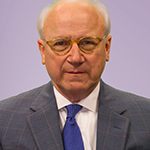 Ferrel Guillory
Ferrel Guillory
Professor of the Practice and Director of the Program on Public Life, School of Media and Journalism, UNC–Chapel Hill
Ferrel Guillory founded the Program on Public Life — formerly the Program on Southern Politics, Media and Public Life — in 1997 to build bridges between the academic resources at UNC and the governmental, journalism and civic leaders of North Carolina and the South. He is an adjunct faculty member in the UNC Department of Public Policy.
Before academia, Guillory spent more than 20 years as a reporter, editorial page editor and columnist for The News & Observer in Raleigh, N.C. He has had freelance articles published in The New York Times, The Washington Post, The Economist, The New Republic, America, Commonweal, Southern Cultures and The Atlanta Constitution. Guillory has contributed chapters to books on David Duke and the politics of race, on economic transition in tobacco regions and on North Carolina politics and government.
Guillory was inducted into the N.C. Journalism Hall of Fame in 2007, and in 2012 he received the Edward Kidder Graham Award that recognizes public service by a member of the UNC faculty.
Guillory is a co-founder of EducationNC, a nonprofit organization that delivers news and policy analysis on Prek-12 and post-secondary trends and issues. For www.ednc.org, he writes a weekly commentary.
Guillory is a senior fellow at MDC Inc., a workforce and economic development nonprofit research firm in Durham. Through MDC since 1996, he has co-authored The State of the South, a series of reports to the region and its leadership. He also co-authored the book, “The Carolinas: Yesterday, Today, Tomorrow: An Exploration of Social and Economic Trends, 1924-1999” (Duke Press, 1999), commissioned by the Duke Endowment
Gov. Mike Easley appointed him to the North Carolina Education First Task Force. Guillory served on the steering committee of the Rural Prosperity Task Force, appointed by Gov. Jim Hunt and chaired by Erskine Bowles. For the James B. Hunt Jr. Institute for Educational Leadership and Policy, he wrote the paper, “Education Governors for the 21st Century.’’ In 2000, Guillory taught at Davidson College as the James K. Batten Professor of Public Policy.
 Rep. Craig Horn
Rep. Craig Horn
Chairman, K-12 Education and Education Appropriations Committees; Member, House Select Committee on School Safety; NC General Assembly
Rep. Craig Horn, former Russian linguist with USAF Security Service, is a retired food broker and businessman. Elected in 2010, Craig is now serving his fourth term in the NC General Assembly representing District 68, Western Union County. Craig is co-chairman of both the House Committee on Education Appropriations and the House Education Policy Committee for K-12 Education. Craig is also the House Chair of the Joint Task Force on Education Funding Review and the Joint Legislative Program Evaluation Oversight Committee. Craig also serves on the NC Child Fatality Task Force and is the NC Commissioner to the Education Commission of the States and is an Early Learning Fellow at the National Conference of State Legislatures.
Rep. Horn has been dubbed the “Education Legislator” by EdNC, the popular blog that covers education policy across North Carolina and was recently named by LongLeaf Politics as one of the 50 Most Powerful People in North Carolina.
Horn led the effort in the General Assembly to move public education into the digital age. In 2015, he was recognized by the NC Technology Association as the Public Leader of the Year. In 2017 EdScoop selected Craig Horn as one of 25 Ed Tech Heroes in the USA for his work in promoting a digital education environment to deliver quality education to every student. The only elected official in the USA to make the list.
In addition to his work in education, Rep. Horn authored Kilah’s Law on child abuse that became a national law when passed by the US Congress in 2016. He has done extensive work on drug abuse issues including crafting and gaining passage of legislation dealing with cannabinoids, methamphetamine and opioid abuse.
Craig is president of the Churchill Society of North Carolina and co-chairman of the Board of Advisors of the International Churchill Society and the Churchill Centre. Craig has spoken at the National Conference of State Legislatures International Summit and is a frequent presenter at NCSL Emerging Leaders Conferences about Sir Winston S. Churchill and his leadership.
In 2015, Rep. Horn was awarded a Doctorate of Humane Letters by Wingate University for his work in education.
Craig and his wife Lorraine live in Weddington, North Carolina. They have four grown children and seven grandchildren.
 Rep. Graig Meyer
Rep. Graig Meyer
Member, K-12 Education Committee, NC General Assembly
Representative Graig Meyer has served in the North Carolina House of Representatives since 2013, representing House District 50, and serving constituents in portions of Orange and Durham Counties. In 2015 and 2016, he served as Co-Chair of the House Democratic Freshman Caucus, and in 2016, he worked across party lines as a founding Co-Chair of two bipartisan bicameral legislative caucuses, the Early Childhood Caucus and the Life Sciences Caucus. In 2017, he was asked to join the Intellectual and Developmental Disability Caucus.
In 2015, Rep. Meyer was chosen for the inaugural cohort of STEMx Fellows and he now serves as the chair of the 2017-19 cohort. He has been a member of the Public School Forum since 2016, and in 2018, Governor Cooper appointed him as a board member of the Southern Regional Education Board (SREB). Several groups have recognized Rep. Meyer for his legislative leadership and advocacy, including the League of Conservation Voters with their 2015 Green Tie Rising Star award, the NC Chapter of the American Association of Retired Persons with their 2016 Capitol Caregiver Award, and in 2018, Equality NC honored him with their the Pearl Berlin and Ellen Gerber Legislator Award.
As one of only two trained social workers currently serving in the General Assembly, Rep. Meyer approaches legislation with an eye towards protecting those who are marginalized, vulnerable and oppressed.
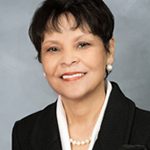 Rep. Bobbie Richardson
Rep. Bobbie Richardson
Vice Chairman, K-12 Education Committee; Member, House Select Committee on School Safety and Joint Legislative Education Oversight Committee; NC General Assembly
Dr. Richardson is a graduate of NC Central University in Durham, NC, where she earned her undergraduate degree and master’s degree, and of the University of North Carolina at Chapel Hill, where she earned a doctorate in Education Leadership.
Dr. Richardson served as the Director of Exceptional Children for Warren County Schools and was the Director of Exceptional Students Program for the NC Department of Corrections, as well as the School Administrator for Licensure, Personnel & Curriculum. Before her retirement in 2013, she was the Director of Exception Children for Vance County Schools. For ten years, from 1988-98, she was a consultant with the NC Department of Public Instruction. She has also been in the trenches, working as a teacher in Durham Public Schools for the Children with Disabilities Program and as a teacher assistant for exceptional children classes at Head Start. She is a former member of the Franklin County School Board.
Dr. Richardson has been recognized many times for outstanding service to her community, including the 2015 Top Ladies of Distinction (Wendell Chapter) Everyday Heroes Award, 2010 Franklin County Democratic Woman of the Year Award, 2012 Perry’s Alumni Humanitarian Award, and Who’s Who Women in Education Award from Durham Public Schools in 1989. She has been nominated and accepted to serve as a State Director for the national Women In Government organization. In 2014 she received the Rising Star Award at the NC League of Conservation Voters’ Green Tie Awards banquet. She was one of the recipients of the 2016 Women of Excellence Award from the National Foundation of Women Legislators and in 2016 she received the Political Courage Award from the Rocky Mount Chapter of the NAACP.
She is a supporter of Franklin County Safe Space (domestic violence services), Franklin County Partnership in Healthcare (formerly Volunteers in Medicine), the Boys & Girls Club of Franklin and Nash counties, and United Way.
Rep. Richardson serves on the Executive Committee for the NC Democratic Party. She is a past chair of the Franklin County Democratic Party and currently is a member of the Franklin County Women Democrats, Franklin County Senior Democrats, the Franklin County African American Caucus, and Nash County Democratic Women. She is a member of the NC Legislative Black Caucus and board member of the NC Legislative Black Caucus Foundation, Inc.
She is a member of Delta Sigma Theta Sorority and a member of the Roanoke, Va., Moles. She is a trustee of Gillfield Missionary Baptist Church and chair of the church’s Education Committee. She serves on the Board of Trustees for Louisburg College in Louisburg, NC.
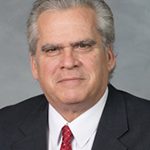 Rep. John A. Torbett
Rep. John A. Torbett
Chairman, House Select Committee on School Safety, NC General Assembly
In the late 70’s John built single-family homes and commercial properties and received his real estate license from the State of Tennessee.
He began his professional career in the corrugated converting industry in 1978. With 25 years in the industry spanning from Tennessee, Arkansas, to North Carolina with service in all southeastern states, Latin American, and Asian countries. He worked as a Layout and Design Specialist, Material Management Specialist, Production Mgr., Sales Mgr., Plant Mgr., Senior Technical Consultant, CEO, and retirement.
John is a past member of the following Nat’l and International Associations:
- Technical Association of Pulp and Paper Institute (T.A.P.P.I.)
- International Association of Diemakers and Diecutters (I.A.D.D.)
- Association of Independent Corrugated Converters (A.I.C.C.)
In 2003 John accepted a position as Vice President of Business Development for Defense Technologies Inc., a US Department of Defense Contractor specializing in Command and Control Software Development for Unmanned Air, Ground, Sea and Sub Surface Systems, and Equipment Life Extension of avionic and weapon systems where he was able to blend a lifelong interest in military history and aviation with over the horizon technological advancements to aid and assist US warfighters. John played an essential role in DTI receiving a coveted and exceptional Experimental Aircraft Certification with active operational airspace within National Air Space (NAS) from the US Federal Aviation Administration (FAA).
In 2010 John accepted the position of Vice President of Business Development for NextWave Technologies. NextWave applies advanced technologies in such areas as the US Department of Defense, US Department of Agriculture, US National Oceanographic and Atmospheric Administration (NOAA), and Global Commercial markets in such areas as Unmanned System Applications, Sensor Technologies, Energy, Security, and develops and enables advanced technologies to a wide array of future growth sectors of Global importance.
After entering the North Carolina State House John decided to take a corporate hiatus to focus intently on the needs of the 108 District and his fellow North Carolinians across the state. His work has been officially recognized by organizations across North Carolina and John is often asked to speak to groups and organizations both in North Carolina and across our nation.
Concurrent Session II
Session II.1 – Mentoring and Promoting Developmentally Positive Environments That Serve to Engage At-risk Youth in School and Community Ecosystems
 Steven Knotek
Steven Knotek
Associate Professor of School Psychology, School of Education, UNC–Chapel Hill
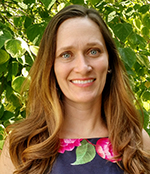 Sandra Evarrs
Sandra Evarrs
Clinical Associate Professor of School Psychology, School of Education, UNC–Chapel Hill
Sandra Evarrs began her career in education as an elementary education teacher in Chicago’s inner city. After completing her Masters and Doctoral degrees in School Psychology she served as a school psychologist concentrating in the areas of low incidence disabilities, developmental disabilities, and pre-school evaluation. She has also utilized crisis intervention, counseling, and consultation skills in her role as a school psychologist. In addition to her work as a teacher and psychologist, she also served as a Special Education Administrator. She explores effective ways of learning through general and special education strategies and supervises school psychology graduate students in the field. She teaches psychoeducational assessment, behavioral intervention in counseling, and supervises school psychology externship experiences. Currently, Dr. Evarrs also serves on the faculty of the Human Development & Family Studies Program in which she teaches Child Development. Throughout her career at UNC Dr. Evarrs has trained school psychologist in the National Association of School Psychologists PREPaRE Crisis Intervention Model. Prevention, preparedness, intervention, and postvention are the guiding constructs of these trainings and workshops conducted each academic year.
Evarrs is the author, with Steve Knotek, of the study “2005-2015: Realizing Our Vision of Languages for All” in Foreign Language and Special Education, edited by colleague Audrey Heining-Boynton. Another chapter in which Dr. Evarrs contributed is a review of visual perception programs published in the International Handbook of Student Achievement. Her doctoral dissertation advanced her scholarly interests in developmental disabilities, psychoeducational assessments and special education.
Session II.2 – Institutional Border Crossing: Facilitating Communication and Collaboration between Medical Providers and Schools to Support Student Safety and Wellbeing
 Michael J. Steiner
Michael J. Steiner
Michael F. Durfee, M.D. Distinguished Professor of Pediatrics, Chief, Division of General Pediatrics and Adolescent Medicine, School of Medicine, UNC–Chapel Hill
Dr. Steiner graduated from Temple University Medical School in Philadelphia and came to UNC as a combined Medicine and Pediatrics resident. After finishing residency and Chief Residency in Pediatrics at UNC, he served in a rural clinic through the National Health Service Corps and then was on faculty at USC/Children’s Hospital Los Angeles.
Since his return to UNC, Dr. Steiner has served as the Medical Director of the Children’s Clinics, the Director of the Child and Adolescent General Clinic/Continuity Clinic, and as an Associate Program Director in Pediatrics. He was selected for the Academy of Educators in 2009 recognizing his roles with residency education and educational administration. Additionally, he has been active in quality improvement initiatives within the Children’s Hospital and across the health care system. He has helped to build programs within the division including Level 3 PCMH certification for the resident clinic and a medical-legal partnership with the Law School and NC Legal Aid. He has developed a program for children with special healthcare needs at NC Children’s Hospital. His research interests include improving resident scholarship, professionalism, and issues around childhood obesity. He is currently the PI on a project examining the use of specialty services and medical homes by children with complex medical needs partnering with NC Medicaid and is a co-investigator on a comparative effectiveness project by AHRQ and the Shep’s Center.
 Alison Cleveland
Alison Cleveland
Principal, Wakefield Middle School, Wake County Public Schools
Alison Cleveland is the Principal at Wakefield Middle School in Raleigh, North Carolina. Prior to Wakefield Middle School, Ali was an Assistant Principal at Athens Drive High School and taught grades 6th through 12th in Wake County, NC, Fairfax County, VA, and Dysart Unified School District in Arizona. Ali was Varsity Field Hockey Player at University of North Carolina at Chapel Hill and earned her Bachelor’s degree in Exercise and Sports Science in 2003. She earned her Post-Bach degree in Curriculum and Instruction in 2006 from Arizona State University. After teaching for 6 years, she returned to the University of North Carolina – Chapel Hill as a Principal Fellow to earn her Master’s in School Administration in 2014.
Ali focuses on whole child development and social-emotional learning in a safe, equitable learning environment where all students experience academic press and rigorous, applicable, engaging experiences. At Wakefield Middle School, Ali has integrated school-wide programming that focus on positive psychology, such as The Positivity Project, The Travis Manion Foundation, and The Social Institute. As a member of the UNC-CH School of Education Board of Visitors, she hopes to bring an “on-the-ground” voice and perspective to the experiences of our youth and our public educators.
Ali is married to Jeremy Cleveland, a former UNC-CH and professional baseball player and current owner of the Cleveland Realty Group. They have two sons, Trevor and Brady and live in Cary, North Carolina. Ali enjoys running and cheering on her sons on the soccer and baseball fields.
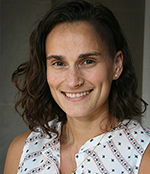 Marisa Marraccini
Marisa Marraccini
Assistant Professor of School Psychology, School of Education, UNC–Chapel Hill
Marisa Marraccini earned her MA and PhD in school psychology with a specialization in research methodology at the University of Rhode Island. Following her doctorate, she completed a postdoctoral research fellowship focused on adolescents with suicidal thoughts and behaviors at the Department of Psychiatry and Human Behavior in the Warren Alpert Medical School of Brown University.
Marraccini’s avenue of research aims to promote child and adolescent mental health in the context of their daily lives – school settings. Her research is focused on supporting vulnerable populations, including adolescents struggling with suicidal thoughts and behaviors, youth at risk for bullying, students with ADHD, and students misusing prescription opioid and stimulant medication for recreational and academic purposes.
She is particularly interested in characterizing adolescent school experiences following psychiatric hospitalization, the application of school (academic and social) context to inform hospital interventions and school supports, and supporting transfer of information between hospitals and schools. This line of research developed out of Marraccini’s experience as a school psychology intern when she conducted numerous risk assessments and from her work as a project coordinator and clinician on multiple studies assessing high-risk adolescents recruited from psychiatric hospitals.
Her passion for teaching and mentoring school psychology students stems from her commitment to promoting social justice in school systems. By partnering with students, Marraccini aims to support developing school psychologists to act as agents of change using evidence based practice to promote student success and equity within schools.
Session II.3 – School Nurses and the Promotion of Socio-emotional Development and School Safety: Evidence-based Interventions and Programs
 Meghan Shanahan
Meghan Shanahan
Research Scientist, Department of Maternal and Child Health and Injury Prevention Research Center, Gillings School of Global Public Health, UNC–Chapel Hill
Dr. Shanahan is a research assistant professor in the Department of Maternal and Child Health and a research scientist at the UNC Injury Prevention Research Center.
The underlying motivation for Dr. Shanahan’s research is to improve the health and developmental trajectories of children. Her research focuses on adverse events that potentially influence these trajectories and prevent children from realizing their full potential. Child maltreatment is one obvious insult to the health and development of children and, therefore, documenting the magnitude, etiology, and impact of child maltreatment has been a focus of Dr. Shanahan’s work. Examining prevention strategies to reduce child abuse and neglect has become another main focal point of her research. She has evaluated prevention strategies at both the family and the policy level in North Carolina. Dr. Shanahan is also interested in examining the impact of prescription and illicit opioid use on parenting and, subsequently, child development, as well as the effects of experiencing intimate partner violence. She is also committed to translating research into tangible products and policies that have an impact on children and families.
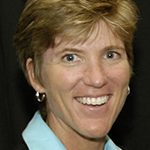 Ellen Essick
Ellen Essick
NC Health School, Section Chief, NC Department of Public Instruction
 Susanne Schmal
Susanne Schmal
Healthy Schools Consultant, NC Department of Public Instruction
Susanne has over 15 years of experience in public health, many of which have been with the Chronic Disease and Injury (CDI) Section, and its various state and community partners.
Through her partnerships with community, state and national efforts, she has primarily addressed the risk factors and associated chronic diseases of obesity, nutrition and physical activity. Her experiences have included participating in national evaluability assessments to identify and assess successful local-level policies and programs that have been implemented to improve the eating habits and physical activity levels of children. She has extensive experience serving in the role of coordinator for various programs and providing oversight and technical assistance, including her tenure with the Heart Disease and Stroke Prevention Branch; a childhood obesity initiative in NC with local funded communities in schools, health departments and faith-based organizations; and serving as the statewide coordinator for a program for the Early Care and Education setting that provides interactive learning opportunities on physical activity and healthy eating. Prior to her role with the CDI Section, Susanne worked with the Center for Training and Research Translation, funded by the Centers for Disease Control and Prevention, to identify, review and translate evidence-based interventions for public health practice, primarily focused on obesity prevention.
Susanne credits her education to learning from peers, colleagues and mentors, as well as her Master of Public Health degree in Health Behavior at the University of North Carolina at Chapel Hill. In her free time, Susanne enjoys running, cooking, hiking/walking on trails, traveling, walking her dogs, spending time with friends, and listening to the birds from her screened porch.
Stakeholder Engagement Session: Building a Roadmap to Action
Facilitators
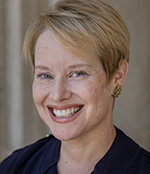 Lora Cohen-Vogel
Lora Cohen-Vogel
The Frank A. Daniels Professor of Public Policy and Education, School of Education, UNC–Chapel Hill
With a focus on domestic education policy, Lora Cohen-Vogel is interested in identifying the programs and practices that are successfully raising schooling outcomes for traditionally underserved students in the United States.
Cohen-Vogel is currently a co-principal investigator of the Early Learning Project at UNC-Chapel Hill, a $4 million grant from the Institute of Education Sciences. In that project, she leads a team that is examining how policy coherence (or lack thereof) may mediate the effect of high quality PreK experiences on children’s later life outcomes.
Through 2015, Cohen-Vogel was co-principal investigator of the five-year, $13.5 million National Center for Research and Development on Scaling Up Effective Schools, a research-practice partnership between UNC, Vanderbilt University, Florida State University, the University of Wisconsin-Madison, the Education Development Center, and two of the nation’s largest school districts.
Through her work with the Center, Cohen-Vogel developed an interest and expertise in continuous improvement research. Today, she writes and speaks widely on the topic and the potential she believes it holds for system improvement.
Articles by Cohen-Vogel have been published in the American Educational Research Journal, Educational Evaluation and Policy Analysis, the American Journal of Education, Teachers College Record, and Educational Administration Quarterly, among others.
Leading the Division of Education Policy and Politics (Division L), Cohen-Vogel is a Vice President of the 25,000-member American Educational Research Association. She has also served as President of the Politics of Education Association. She is on the editorial board of Educational Researcher.
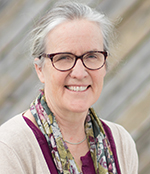 Alice Ammerman
Alice Ammerman
Director, Center for Health Promotion and Disease Prevention; and Professor, Gillings School of Global Public Health & School of Medicine; UNC–Chapel Hill
Dr. Ammerman is the Mildred Kaufman Distinguished Professor in the Department of Nutrition, Gillings School of Global Public Health at UNC-Chapel Hill, and Director of the Center for Health Promotion and Disease Prevention (a CDC Prevention Research Center or PRC). Her research focuses on the design, testing, implementation, and dissemination of innovative clinical and community-based nutrition and physical activity intervention approaches for chronic disease risk reduction in primarily low income and minority populations. Dr. Ammerman has strong research and practice collaborations across the state and with PRC research networks across the country. She is also Co-PI of the Center for Training and Research Translation, charged with identification, translation, and dissemination of evidence-based interventions for obesity and cardiovascular disease control and prevention. Current research interests focus on behavioral economics, school nutrition, the interface between healthy food access and sustainable local food systems, and social entrepreneurship as an approach to addressing public health concerns.
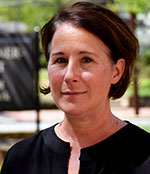 Kirsten L. Kainz
Kirsten L. Kainz
Research Professor, School of Social Work, UNC–Chapel Hill
Kirsten Kainz is research professor and associate director of research development and translation in the School of Social Work at the University of North Carolina at Chapel Hill. Kainz is an engaged methodologist with a decade of experience generating and using evidence to enhance child development. When serving as principal researcher or as team methodologist, her work has contributed to the evidence base for improving education, health, and social opportunities for vulnerable children and youth. She is committed to using advanced statistical modeling and pragmatic research methods to guide system design and improvement. Her work appears in research and practitioner journals, and she speaks frequently with community organizations about the use of research evidence to guide decision making.

